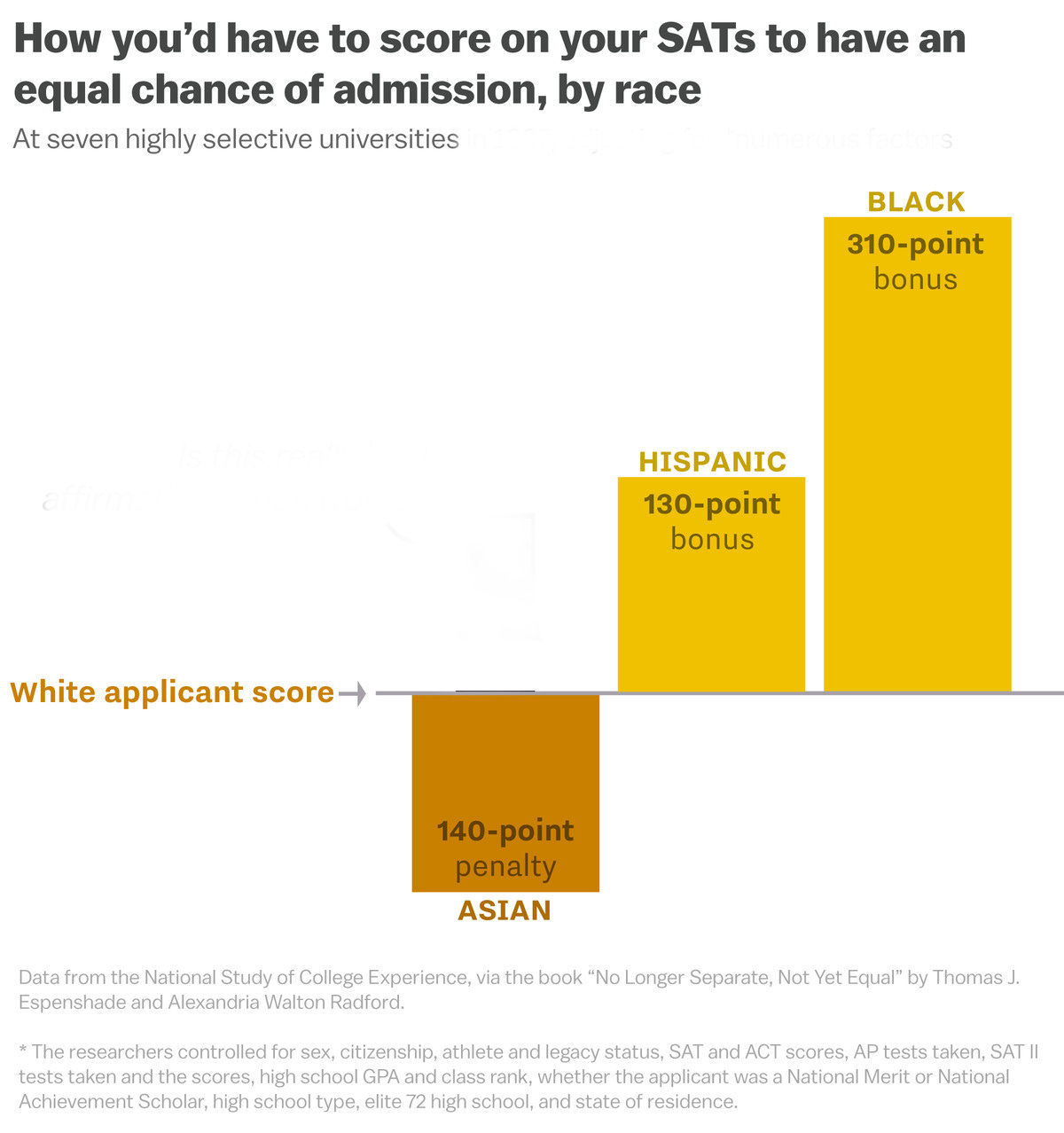Systemic Racism in College Campuses
You’re a student in your Senior year of high school applying to universities across the country. At 17 years old, it’s most likely the biggest change in your life so far. You have a solid GPA, stellar SAT/ACT test scores, and your extracurricular activities are numerous. You apply to top-ranked colleges like Harvard, Brown, and Berkeley. You ultimately get rejected, only to find out that the reason why you got rejected wasn’t because of your scores or volunteer work or a badly written essay, but because of your race. This is one result of affirmative action, a policy being enacted by most universities in the United States. On October 31st, the Supreme Court will be looking at two cases from Harvard and the University of North Carolina - Chapel Hill, in regard to affirmative action. What has been upheld for decades may no longer be the case if the court decides to strike down the constitutionality of affirmative action.
Affirmative action, according to the Legal Information Institute at Cornell, is defined as:
A set of procedures designed to; eliminate unlawful discrimination among applicants, remedy the results of such prior discrimination, and prevent such discrimination in the future.
Universities have long expressed their interest in having a diverse student body. According to U.S News’ article “Diversity in College and Why It Matters”, diverse campuses allow students to learn from one another and consider other cultures and experiences that are not their own. Diversity, arguably, can mean a lot of things. It can mean ethnicity, race, sexual orientation, gender, if you’re a first-generation immigrant, etc. These are often referred to as “underrepresented minorities.” For the purposes of this article, we will refer to diversity as it is described above. Now, while wanting diversity isn’t a bad thing at all, this is one of those situations where the theory sounds better than the actual result of the practice.
In the Harvard lawsuit, the numbers show that Asian representation would be 50% higher if affirmative action were eliminated. In a 2009 Princeton study, Asian students were shown to be facing the odds three times more than similarly qualified white, six times more than similarly qualified Hispanics, and sixteen times as high as similarly qualified African-Americans.
Some universities, such as Harvard, apply something called a “personal quality” rating to applicants. Arguably subjective, the “personal quality” rating doesn’t have a set definition, to which we can only guess is what the admissions officers think the applicant’s personality traits are. I would imagine it’s something along the lines of looking at leadership capability, and sociableness, among other things. Not only are Harvard admissions officers ranking Asians lower on the personal quality scale, but their reasoning is due to the fact that their applications all look the same.
According to Hunter College High School’s director of college counseling, admissions officers at elite universities often complain that Asian American applicants all look the same on paper. “When Harvard calls us back and gives us a brief synopsis of why certain [Asian] kids didn’t make it, they’ll say, ‘There were so many kids in the pool that looked just like this kid.’”
It doesn’t matter that you’re a low-income Asian student who managed to succeed in numerous areas. The fact that you’re Asian immediately knocked you down on the list, and it put other minorities, regardless of if they had more resources at their disposal and/or had a worse resume, on top of you. Simply because of your race. Admissions officers at Harvard have repeatedly described Asian Americans as “being quiet/shy, science/math oriented, and hard workers” in their applicant files. How can you know if they’re quiet when you have never spoken to them? You can’t. Comments like these are hasty generalizations.
The good news is that a majority of Americans still believe in fairness. A YouGov poll in April 2022 tried to analyze what Americans would think about affirmative action when the questions included the impact of affirmative action.
As shown above, when respondents see what the impacts are they are less likely to support it.
This begs the question of ‘is affirmative action inherently fair?’ I would argue that the answer is ‘no’. It is unclear what exactly would happen to university admission protocols if the Court sided with Students for Fair Admissions, the organization suing Harvard and UNC. While the majority of Americans do believe that diversity in schools is important - well, some types of diversity more than others, as shown below (which is another issue for another article) - it is important to consider the negative impacts of affirmative action as well. Are we okay with reducing the opportunity to attend elite universities for some minorities at the expense of others, simply to say that we support diversity? That’s a question we will have to continue asking ourselves. Are we ready to begin valuing diversity of thought over diversity of immutable traits? Time will tell.






